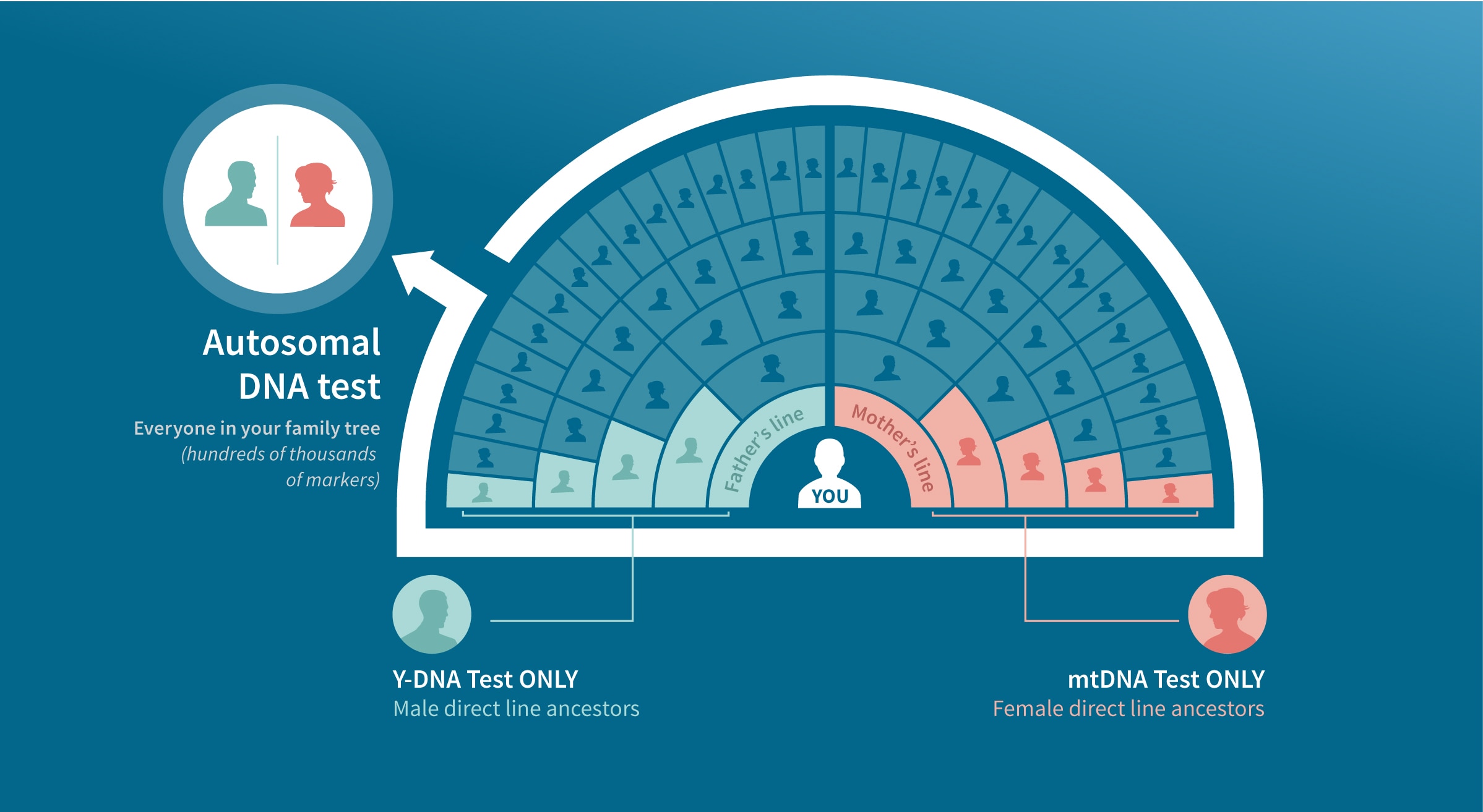
An autosomal DNA test measures your autosomal chromosomes, which make up the majority of your DNA. You inherit these chromosomes equally from both of your biological parents. This means that autosomal DNA tests have the ability to analyze the DNA from more of your ancestors than other types of DNA tests. For instance, an autosomal DNA test can find genetic information about both your maternal and paternal grandfathers, which other tests typically can't do.
Scientists often use sequencing or genotyping methods to analyze a person’s autosomal DNA. These processes involve looking at hundreds of thousands of positions, or markers, across all 22 pairs of your chromosomes.

Ancestry ® scientists, for example, use a genotyping method to look for large areas of shared DNA between you and other people in the AncestryDNA ® database, which includes more than 25 million DNA test takers. The greater amount of DNA shared between you and another person—measured in units of centimorgans—the more closely you are related.
To determine your family’s origin story through autosomal testing, Ancestry scientists use a reference panel to compare your DNA to DNA from people who have deep roots in various parts of the world. For example, if a part of your DNA is similar to the reference panel of people from Ireland, then that part of your DNA is probably from Irish ancestors. AncestryDNA uses this information to suggest where your ancestors lived hundreds or even a thousand or more years ago.
Yes, an autosomal DNA test is particularly accurate for finding both close and distant relatives on your maternal and paternal sides. An autosomal DNA test can identify your second and third cousins with incredible accuracy, if they have also taken an AncestryDNA test. The chances of finding more distant relatives may be lower, but it can still be possible to find even a tenth cousin.
DNA tests such as Y-DNA tests or mtDNA tests (which look at X-DNA) are more limited for finding relatives for both of your parental lines because they focus exclusively on a single branch of your family tree. While they can be useful for determining if you are related to someone on your dad's paternal line or your mother's maternal line, they cannot determine exact relationships.
Autosomal DNA tests provide more specific results for family history researchers because they focus on people who share markers among 22 chromosomes instead of a single sex chromosome.
Autosomal DNA tests are available to anyone, regardless of gender, and provide information about your recent genetic history. Here are two common reasons people take an autosomal test.
In general, if you’re looking for comprehensive DNA test results—information that is relevant to both sides of your family tree—then an autosomal DNA test should meet your needs.
Autosomal DNA tests offer the most information-rich results to people interested in their family history. This is because the test results take into account information that reflects your maternal and paternal lineages. It can yield meaningful results to everyone in your family.
AncestryDNA ® can be a great way to find new family members within a few generations—cousins you never knew existed—as well as information about your family’s origins.
* AncestryDNA samples are tested against our whole database, but users will only see matches with those who have their matches settings turned on (i.e., public).